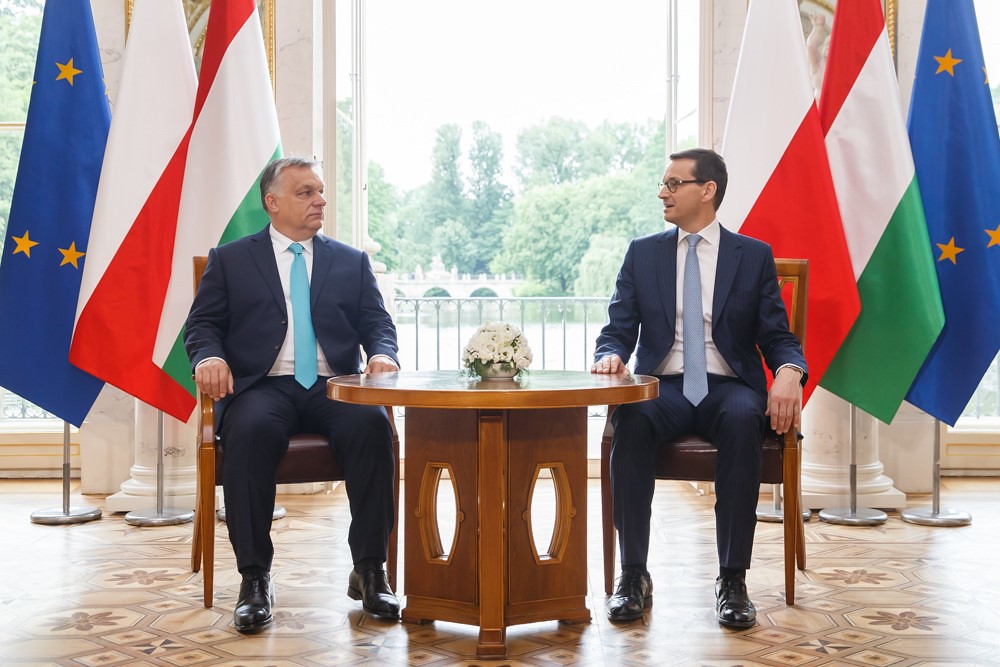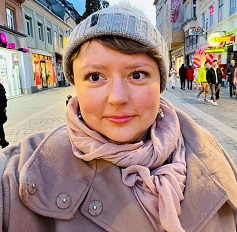By Joanna Kędzierska
Viktor Orbán’s resounding electoral victory in Hungary this month will further complicate Polish-Hungarian relations, which have been challenged by the very different responses of the two countries’ governments – normally close allies – to the war in Ukraine.
Whilst Poland has been among the strongest voices condemning the Kremlin’s actions and expressing support for Ukraine, Hungary has sought to avoid irritating its strategic Russian ally, opposing tougher sanctions and refusing to allow arms to be sent to Ukraine through Hungarian territory.
Orbán’s courtship of the Kremlin and the blind eye he has turned to the atrocities perpetrated by Russia in Ukraine recently provoked unprecedented criticism from the head of Poland’s ruling Law and Justice (PiS) party, Jarosław Kaczyński, who said that Orbán needed to have his eyes tested and warned that “we cannot continue to cooperate if it continues like this”.
Budapest in Warsaw
This marks a huge change from the situation before the war, when the alliance between PiS and Orbán’s Fidesz party led many to recall the old saying: “Polak, Węgier – dwa bratanki/Lengyel, magyar – két jó barát” (meaning “Pole and Hungarian brothers be”).
The two governments have long supported one another in their respective – and sometimes joint – conflicts with Brussels over refugees, the rule of law and other issues.
“The two countries could rely on each other when it comes to their attitude towards rule of law and the procedure connected to its infringement,” says Szabolcs Panyi, a Hungarian investigative journalist. But also, he notes, “they have been close to each other on the ideological level”.
In 2011, a year after Orbán assumed office, Kaczyński (then in opposition) declared that he wanted to create “Budapest in Warsaw”. Both leaders have also held regular talks over the last year with the likes of Marine Le Pen and Matteo Salvini over creating a new Eurosceptic alliance within the EU.
“The group created by Orbán presented a completely different system of values compared to the rest of the EU countries and it saw the EU’s future and its relations with the US also in a different way,” says Bogdan Góralczyk, a political scientist from the University of Warsaw.
The war in Ukraine has changed everything
Poland’s opposition has long criticised this emerging alliance, noting the other parties’ sympathies towards Russia and accusing PiS of consorting with Kremlin agents. For a long time, PiS dismissed such concerns, but that has now changed.
“The war in Ukraine divided Poland and Hungary, and while the former decided to stay in western camp, the latter is in the pro-Putin camp,” says Góralczyk.
President Duda says that it is "hard for me to understand the approach" of Hungary's Viktor Orban – normally an ally of Poland's ruling national conservatives – towards Ukraine.
"This policy will be costly for Hungary, very costly," warns Duda https://t.co/0SdCSXA5Bi
— Notes from Poland 🇵🇱 (@notesfrompoland) March 27, 2022
The deterioration of bilateral relations is noticeable in both practical and rhetorical dimensions. Poland and Hungary found themselves on opposite sides of barricade. After previous electoral victories, Orbán had the habit of picking Warsaw as the destination of his first foreign trip, to stress how important Poland was.
“He visited Warsaw in 2010, 2014 and 2018 after his victory,” says Andrzej Sadecki, senior fellow of Warsaw-based think-tank the Centre for Eastern Studies. This year, however, Orbán did not visit Poland after he won, instead heading for the Vatican.
Orbán has a tradition of paying his first foreign visit as (re)elected Prime Minister to Poland – like in 2010, 2014 & 2018. That’s why it’s newsworthy that his office just announced that Orbán’s first trip after his 2022 victory will lead him to the Holy See. He’s Calvinist btw.
— Szabolcs Panyi (@panyiszabolcs) April 20, 2022
Before the election, high-level Polish-Hungarian meetings had been cancelled, including a meeting in March of defence ministers from the Visegrad group – which Poland and the Czech Republic boycotted – and a visit by the Hungarian president to Poland.
Polish media reports claim that PiS politicians have declared that Polish-Hungarian relations have been practically frozen, limited to the bare minimum at the governmental level.
“It seems to be a real clash,” says Panyi.“Russia is a really divisive issue and I think it is almost a miracle that both governments have [previously] been able to put it aside. But right now, it cannot be swept under the rug anymore.”
67% of Hungarians think that “The problems of Ukraine are none of our business, and we should not interfere”. In Poland, this is 27%. Ipsos poll reflects the power of gov communication in HU: low threat perception and low solidarity. outlier in the EU. https://t.co/JZPLeFmayD pic.twitter.com/75TBjZEDQl
— Peter Kreko (@peterkreko) April 23, 2022
In a poll by SW Research for the Rzeczpospolita daily earlier this month, over 57% of respondents in Poland agreed that Poland should cool its relations with Hungary, while only 14% were of the opposite view.
The political shift has been accompanied by an adjustment of the narrative in Hungarian state-funded media. “Whilst before the war Hungarian government-controlled media had presented Poland as a useful partner, friend and ally, after 24 February its message has totally changed, which was linked to the electoral campaign,” says Góralczyk.
During the campaign, Orbán presented himself as the candidate who could protect Hungary against the war and ensure its security and prosperity, contrary to the domestic opposition and Poland, which were seeking conflict.
Russia first
The war in Ukraine has turned out to be a test for both Poland and Hungary regarding which alliances are valuable and needed and which not necessary. Poland has strengthened ties with western countries, but Orbán has chosen Russia.
“For 10 years Orbán has been implementing the ‘open to the East strategy’, not only towards Russia, but also Kazakhstan, Azerbaijan and China. He has signed many non-transparent deals with Russia; he therefore became a Russian hostage,” says Góralczyk.
Russian president Vladimir #Putin congratulated Hungarian PM Viktor #Orbán on his election victory.
He expressed confidence that, "despite difficult international situation, the further development of bilateral partnerships fully meets the interests of the peoples of RU and HU. pic.twitter.com/tC1BUsAHsL
— Viktória Serdült (@viktoriaserdult) April 4, 2022
According to Panyi, Russian money has corrupted the Hungarian elites, which heavily profited from relationships with Russia, helping to maintain Orbán’s political position and popularity thanks to cheap energy prices. But this is not the only reason for the Hungarian prime minister’s stance on the war in Ukraine.
“Even in his victory speech, Orbán listed President Zelensky amongst his enemies and opponents. Hungary has been very hostile towards Ukraine, especially since 2017,” says Panyi.
By contrast, senior Polish officials, including the prime minister and president, have recently visited Kyiv and became active advocates of Ukrainian interests on the global scene.
Uncertain future
Investing so much political capital in Moscow may not offer the hoped-for return for Orbán. “Relying on Russia may turn out to be a mistake, as Russia does not have much to offer to Hungary now,” Sadecki warns.
And relations with Poland will remain difficult. Góralczyk says that, while it is hard to predict how they can be in the long run, in the near future “Orbán will be further developing his ‘pivot to the East’ policy, which excludes the development of the Budapest-Warsaw axis”.
Still, he notes that declarations by PiS and Fidesz politicians indicate that the two governments will still be able to rely on each other regarding their policy towards the EU. That might be needed, as the EU has just triggered the budget conditionally procedure against Hungary over breaching the rule of law.
Sadecki does not rule out an improvement in Polish-Hungarian relations if Orbán distances himself from Russia and its actions in Ukraine. But that has not happened yet. In the current circumstances, Panyi concludes, “it could be a risk for Kaczyński domestically to be associated with Orbán”.
Main image credit: KPRM (Public domain)





















